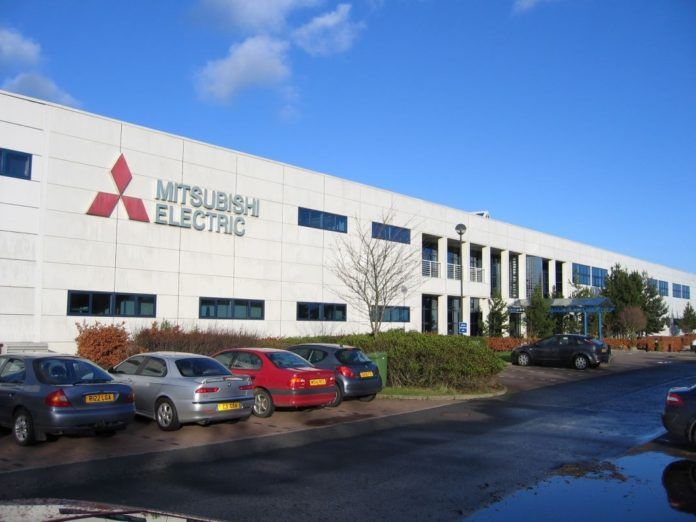
Mitsubishi has announced an investment of £15.3m in its Livingston manufacturing facility to significantly increase production and R&D of heat pumps to meet UK and European demand.
The heating products manufactured at Livingston, Scotland incorporate air and ground source heat pump technology.
The company’s R&D activity will support the development of next generation heat pump technology in Scotland, including investigating new ‘low global warming potential’ refrigerants and materials, a statement said.
Earlier this week, as COP26 kicked off in Glasgow, Mitsubishi Electric Air Conditioning Systems Europe signed a Memorandum of Understanding (MOU) with Scottish Enterprise to formalise their alliance.
The MOU will “enable exploration of a low carbon heat pump centre of excellence in Scotland, as well as help the company extend its Scottish supply chain and innovation partners, leading to more high quality, green jobs”.
Tatsuya Ishikawa, president and CEO of Mitsubishi Electric Europe, said: “We believe it is our corporate responsibility to conduct business in a way that contributes to creating new values, a sustainable society and that further supports other businesses that contribute to the environment. In this sense the MoU we just signed with Scottish Enterprise is an important step towards fulfilling these responsibilities.”
Scottish Enterprise is contributing to Mitsubishi Electric Air Conditioning Systems Europe’s investment project with a wide package of support, including £1.8m of grant funding, creating 55 new jobs and protecting 324 existing jobs, a statement added.
Masao Nagano, president of Mitsubishi Electric Air-conditioning Systems Europe, added: “This MoU cements an already strong relationship with Scottish Enterprise, the Scottish Government and our commitment in Scotland to produce low carbon heating systems. We are developing our ‘smart factory’, where we can integrate automation and robotics equipment into operations, install industrial advanced sensing systems to provide real time information, and develop digital skills for our employees. Not only will this lower our own manufacturing emissions, it enables us to help our customers lower their emissions too.
“Reducing manufacturing emissions with ‘smart factories’ is possible because as productivity increases, time and energy to manufacture reduces, which creates a net reduction in CO2 and delivers a more sustainable high value manufacturing facility.”
